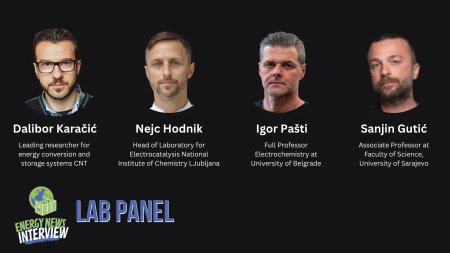Galp Gás Natural Distribuição (GGND), which is the largest gas distributor in Portugal, already has 70 requests to inject renewable gases into the networks, essentially green hydrogen. Three are more advanced and should start injecting within a year.
“We have received more than 70 requests from hydrogen and biomethane producers to inject into our networks. Within these 70, we have three to four that are biomethane, but the vast majority are hydrogen projects,” indicated the CEO of GGND, Gabriel Sousa, in a meeting with journalists. Among the dozens of hydrogen projects, “we have three projects that are already at cruising speed, with commitments for injection within a year. The rest are still in a phase of appreciation or licensing,” added the CEO.
For now, there is a demonstration project on the ground in Seixal, which is producing green hydrogen for injection into a network that was isolated and supplies 80 customers – “two or three industries and the rest commercial and residential. There is a network between the producer and a mixing station, of about 1,400 meters, in polyethylene, where hydrogen already circulates at 100%. However, since consumers are not ready to receive 100% hydrogen, from the blending station the project will start by injecting 2% into the grid and progress to 20%, within two years.
Biomethane is there. All that is missing is strategy
Biomethane, unlike green hydrogen, requires fewer adaptations in networks and homes – for example, a natural gas water heater can run on biomethane, explains GGND’s CEO. In that sense, biomethane projects will be faster to implement than green hydrogen projects – while an upgrade of a biogas plant to produce biomethane can be completed in about three months, the electrolysers that are required for green hydrogen production are on delivery time delays of a year to a year and a half.
“We strongly believe that with a national strategy for biomethane the biomethane projects will appear, not least because today we already have about 70 facilities producing biogas and burning biogas. The right legal framework will make these stations that produce biogas upgrade to biomethane and inject into the network”, said Gabriel Sousa.
This strategy is currently being prepared by the supervising entities, but the distribution company has no indication yet of when it will be finalized.
Previously, biomethane was not competitive with natural gas, because it currently has a cost of 60 to 80 euros per megawatt-hour. However, with the sharp rise in natural gas prices, which is this Thursday at 178.8 euros per MWh, biomethane becomes competitive.








